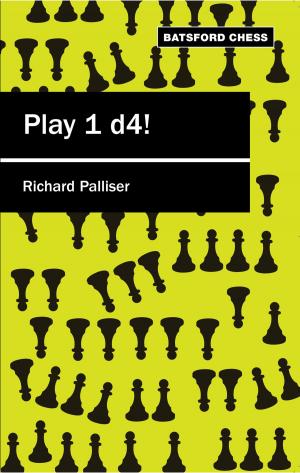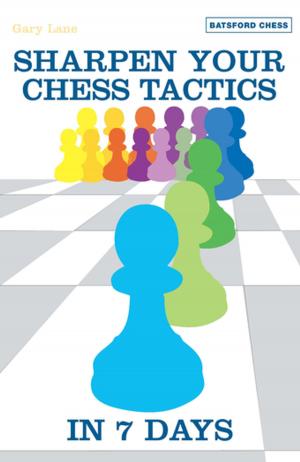Kasparov: How His Predecessors Misled Him About Chess
Nonfiction, Entertainment, Games, Home & Garden, Crafts & Hobbies| Author: | Tibor Karolyi | ISBN: | 9781849941778 |
| Publisher: | Pavilion Books | Publication: | March 3, 2013 |
| Imprint: | Batsford | Language: | English |
| Author: | Tibor Karolyi |
| ISBN: | 9781849941778 |
| Publisher: | Pavilion Books |
| Publication: | March 3, 2013 |
| Imprint: | Batsford |
| Language: | English |
Over the past few years the great chess player Garry Kasparov has written five best-selling books praising the contributions to chess made by the previous world champions. The series is called 'My Great Predecessors'. As a reaction to this wonderful series of books, leading chess writer Tibor Krolyi has written this imaginary sixth volume. In gently humorous - but chessically serious -style, the author imagines Kasparov is annotating over 70 of his own lost games, and blaming all these defeats on the bad influence of each of the previous world champions, providing in-depth analysis to show how he was misled by them. The book also serves as a highly instructive, practical chess book -to beat Kasparov, the greatest player of all time, took some pretty special chess, and readers will enjoy learning from this. It is astonishing how the author has managed to find so many games that exhibit uncanny similarities between Kasparov and his predecessors, which makes the content of the book extremely plausible -as if Kasparov himself were writing it. This is a brilliant and totally original chess book that could only have been written by someone with great knowledge of Kasparov and the past world champions.
Over the past few years the great chess player Garry Kasparov has written five best-selling books praising the contributions to chess made by the previous world champions. The series is called 'My Great Predecessors'. As a reaction to this wonderful series of books, leading chess writer Tibor Krolyi has written this imaginary sixth volume. In gently humorous - but chessically serious -style, the author imagines Kasparov is annotating over 70 of his own lost games, and blaming all these defeats on the bad influence of each of the previous world champions, providing in-depth analysis to show how he was misled by them. The book also serves as a highly instructive, practical chess book -to beat Kasparov, the greatest player of all time, took some pretty special chess, and readers will enjoy learning from this. It is astonishing how the author has managed to find so many games that exhibit uncanny similarities between Kasparov and his predecessors, which makes the content of the book extremely plausible -as if Kasparov himself were writing it. This is a brilliant and totally original chess book that could only have been written by someone with great knowledge of Kasparov and the past world champions.















